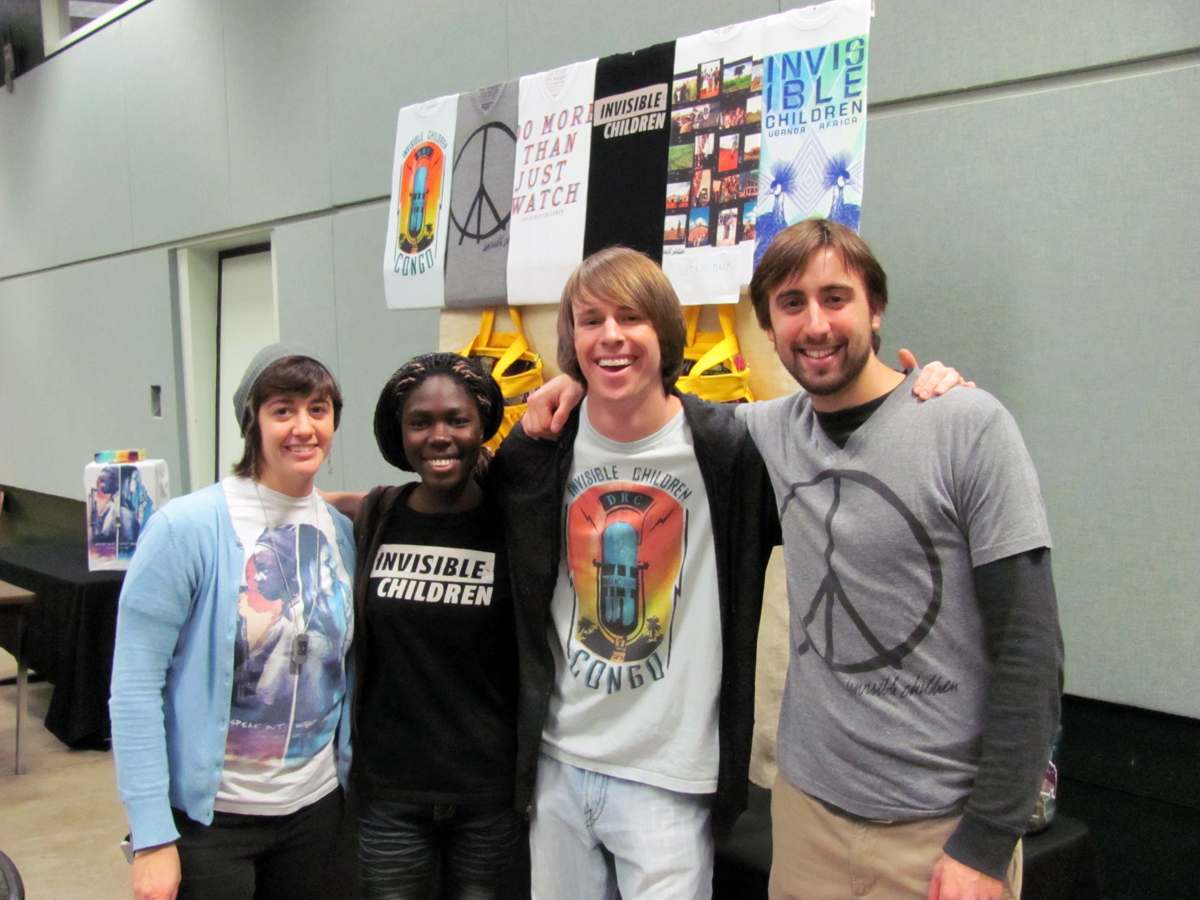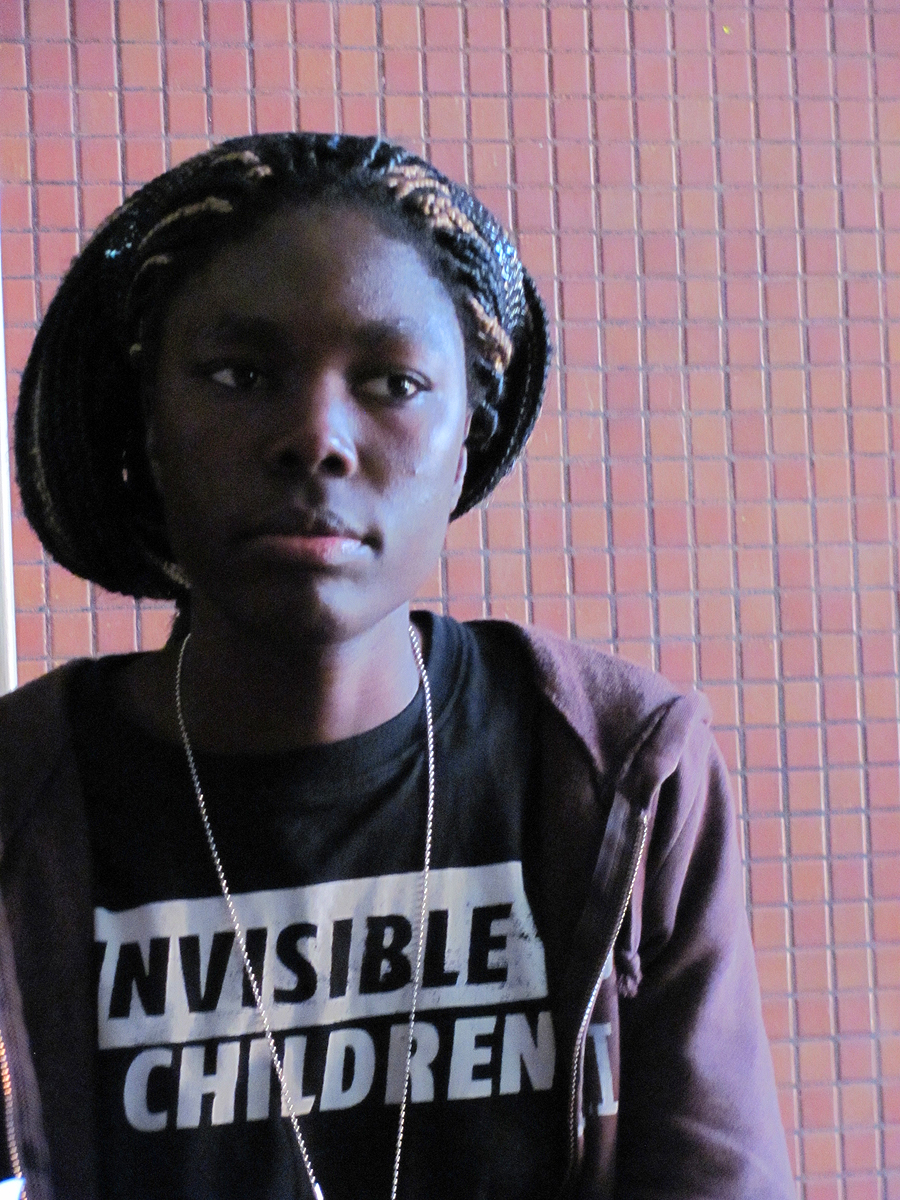Story by Denisha Konyn and Jessica Ferguson
Photos by Jessica Ferguson
Sounds of a 911 operator and sirens filled the pitch-black lecture hall. As they faded, children’s voices and quick footsteps followed with flashing images of children walking through the night. Pictures of three men, like a personal slide show, played across the screen. The images were in sync with the voice of a young man talking about a trip he took to Africa that changed his life.
On Thursday, April 21, the international organization Invisible Children held a film screening on the UO campus. The video, called “Tony,” summarized the formation of the program started to aid the people of Uganda against terrorism. Currently, Invisible Children representatives are traveling across the US holding screenings to address and inform the nation of the tragedy that is occurring in northern Africa. For the past twenty-five years, a group of rebel forces called the Lord’s Resistance Army (LRA), led by the brutal Joseph Kony, has terrorized the Ugandan people and kidnapped children to use in the LRA. To protect their children, parents would send their children to the streets of the inner city before nightfall to seek protection from the child snatchers.
Thursdays showing featured a guest speaker who has lived through Kony’s terror. Brenda Acan shared her experiences as a child and how her sister was brutally slain at the hands of the LRA. In 2009, Invisible Children awarded Acan the Legacy Scholarship, which gives money for college to those impacted by the LRA. With her gentle, accented voice, Acan explained how she wanted to go to college after high school but couldn’t afford it. “I had no option,” she said. Few do in Uganda, where less than two percent of women pursue a higher education.
Currently, Invisible Children is working on a Protection Plan, a program to place radios in Ugandan villages to insure proper communication to authorities and other Ugandans. The organization also plans to open rehabilitation centers for youth that have been captured and exposed to the terror of Kony’s army. All money that is collected to fund the Protection Plan is obtained through donations.
After the film screening Thursday, students offered feedback as to how they felt about the movie.
“I am just really impressed and blown away by the Protection Plan,” UO sophomore Ella Gummer said. “It’s on the ground, it’s direct. It’s visually laid out right there for you and you can see the massive effort that the people that are dedicated to Invisible Children.”
The enthusiasm of Acan and Gummer combined with the sight of the nearly empty lecture hall reinforced the words of Jolly, a Ugandan woman featured in the film who had a major impact in the creation of Invisible Children. While walking to the airport terminal to go back home to Uganda, Jolly says to the camera, “Out of sight does not mean out of mind.” She points at her head and continues, “It’s still there.”
Monday, April 25 at 8 p.m. marks the end of the Invisible Children Break the Silence campaign. With eighteen participating cities, Break the Silence asks participants to spend twenty-five hours in silence to honor those who have lost their voices and lives at the hands of Joseph Kony.









